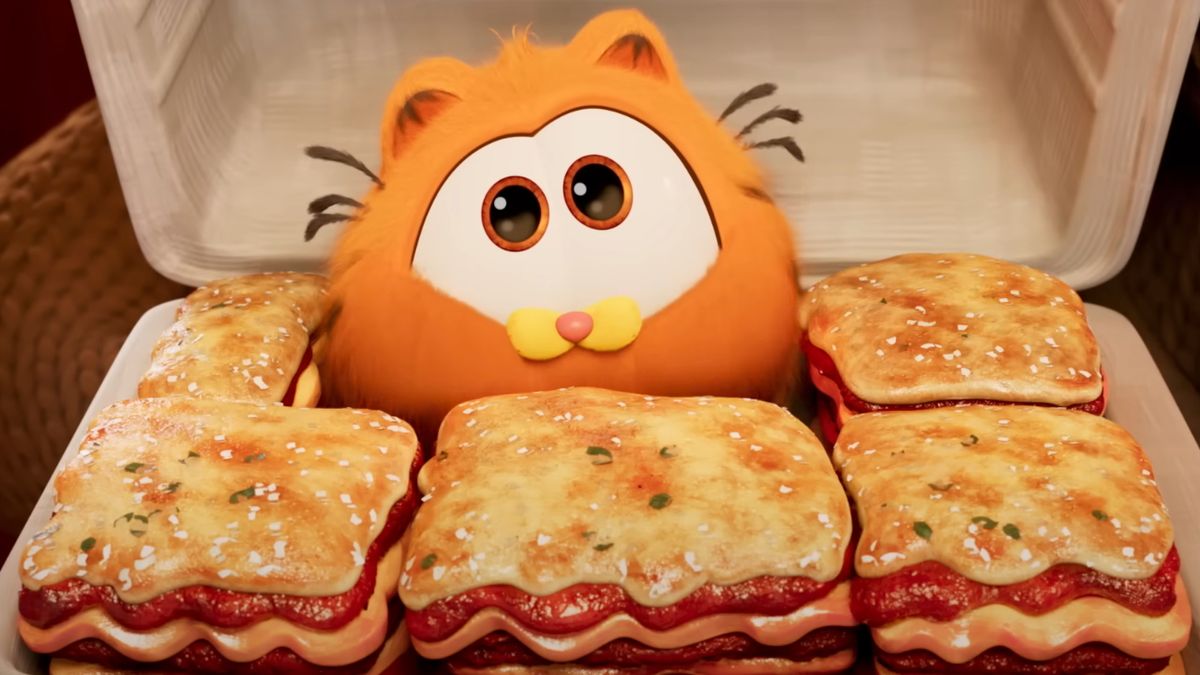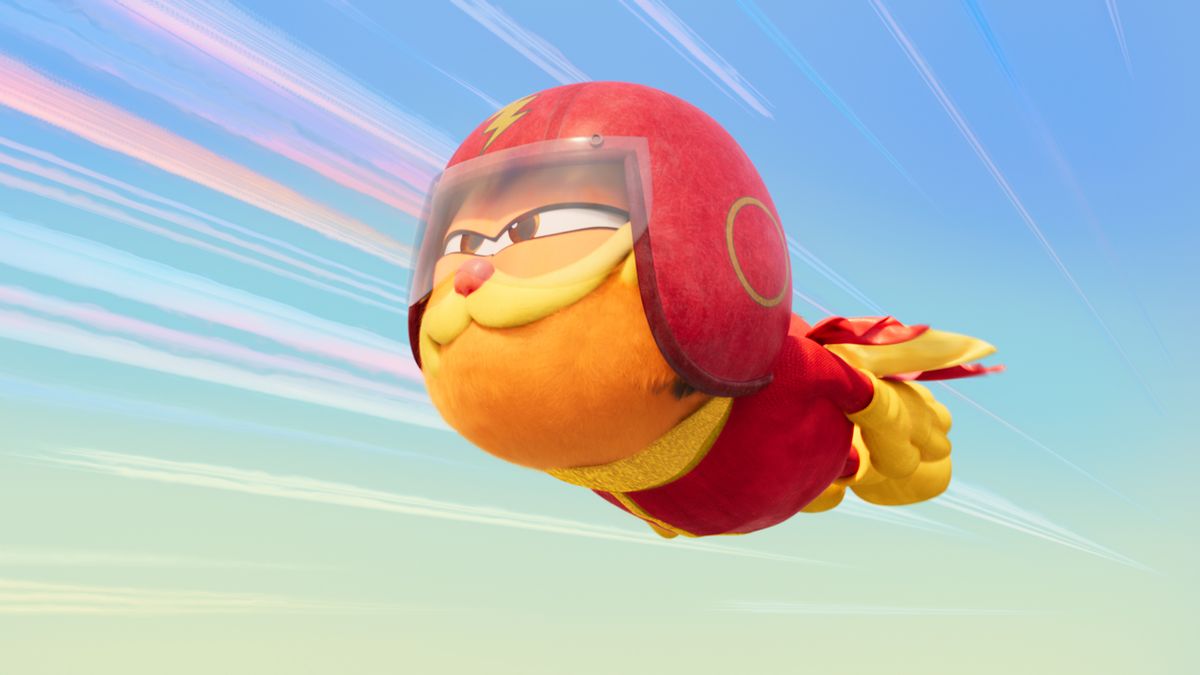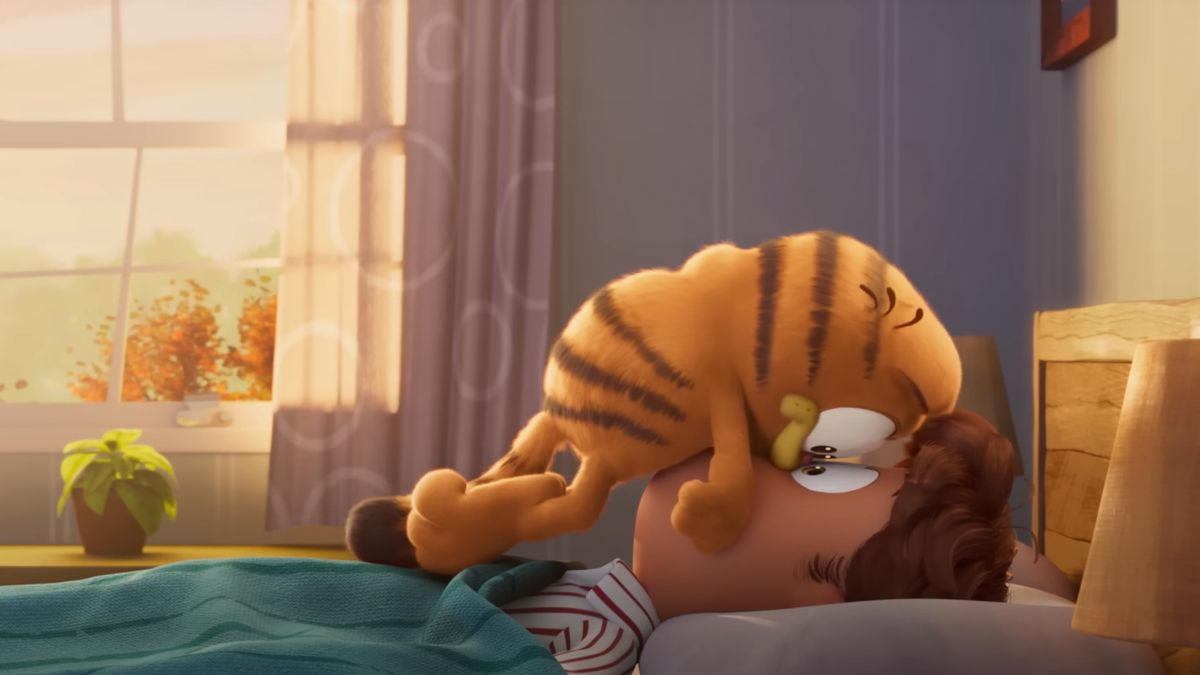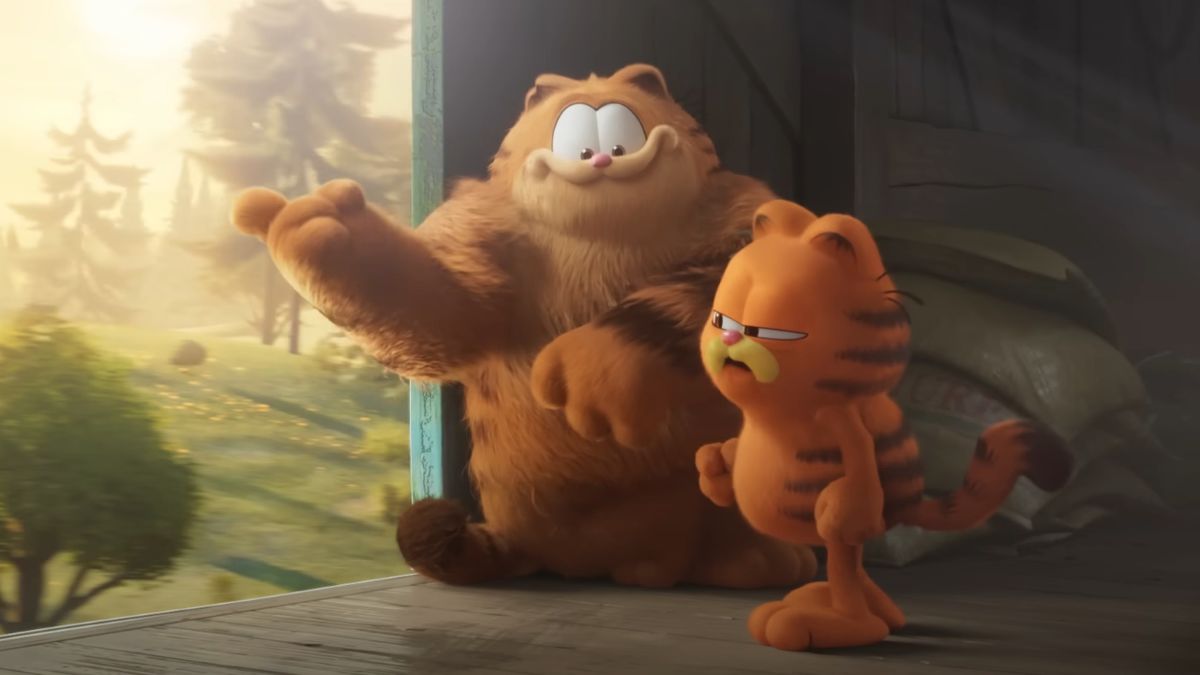“Am I using trigger words that I’m not aware of?’ Jon Arbuckle asked as Garfield fled from his house for the third time. I couldn’t help but chuckle at the line toward the end of The Garfield Movie because it was hilariously ironic, given the movie I just sat through. As the parent and spouse of adoptees, the lack of care taken in this story is baffling to me.
It was a lesson learned all too late for my wife and young daughter, who picked the movie on a girls night out. It was their reaction that encouraged me to stream it for myself with a Netflix subscription to see if my opinion differed, being someone familiar with the struggles that adoptees go through without being one myself. I’m upset to say the movie let me down, and with November being National Adoptee Awareness Month, I think it’s fair to highlight how this movie fell short of the mark of servicing the community it used a story for.

Garfield’s Flippant Use Of Adoption As A Storyline Was A Bit Rattling As The Parent Of An Adopted Child
Hollywood only has so many ways to draw emotion in family movies, it seems, and seeing as IF already left many in shambles with its traumatizing parent death scene, adoption was ready for The Garfield Movie to pick up. It’s not the first children’s movie to do so, as readers surely remember or have seen Annie, Stuart Little, Matilda, Meet The Robinsons, and more. Anyone with knowledge of adoption trauma could poke holes in those movies with the issues they present, but even so, I don’t think any of them hold a candle to what we experience in The Garfield Movie.
For those who haven’t checked it out, the vast majority of this story is centered on Garfield reuniting with his father, who he believed abandoned him as a child. The movie ends with the father joining the family, but along the way, there are so many reckless storytelling reveals that I was shocked and saddened that my child had to endure it. I was particularly bothered by the fact Garfield’s father willingly let him go with Jon, but then continued to observe Garfield from afar while never making himself known or trying to reconnect. The movie plays Garfield’s revelation that his father was secretly always around as a touching moment, but I can at least say for me personally, that would infuriate me.
Before I get into how, I recognize not everyone reading may be in the headspace to understand why The Garfield Movie could be upsetting to an adoptee. I’ll confess as someone previously unfamiliar I had that same mindset, in that if the adopted child is in a safe place now, no harm no foul, right? They should be grateful they ended up in a good place, rather than with the cards they were dealt.
Now, imagine a world in which you have no idea of what your life was like before you were adopted, and because of the laws and mindsets of the past, you will never get those answers. Early parental separation impacts brain development, and while there are no conscious memories of the early years of our lives, the brain and body remember. It impacts everything, from the way adoptees operate with others in relationships to interactions in everyday life.
I can definitively say I can’t speak to the experience of every adoptee, but my description comes from conversations with the people I love and the unnamed people in their community I’ve also interacted with. There are struggles that come with being adopted in even the most loving environments, and so much of it occurs during childhood. And yet, we continue to use and run the risk of exploiting the stories of these children for emotional impact, and with a flippant tone that, frankly, felt like no one who was a product of adoption was consulted for the movie. It’s upsetting to see, especially for a franchise as big as Garfield.

The Movie Dives Heavily Into Feelings Adoptees Feel Without Much Interest In Exploring Those Emotions
I think what’s most damning about The Garfield Movie is that it hits on a lot of common themes adoptees come across in their lifetime but is not interested in diving into any of them. So much is unspoken between Garfield and his father, Vic, about his feelings of abandonment, learning his father was watching him from far away, and reuniting. This would be fine in most cases, but it’s literally the entire point of the story, so why not explore it and go past tired tropes? It’s such a missed opportunity not only to educate others but to help children experiencing the same feelings.
One particularly painful part is the scene in which we see Garfield’s father balk at retrieving his son from Jon and continuing to do so because his adopted father can provide a better life. Its a rough decision that, frankly, some biological parents do make in the world of foster care and adoption, but there are also many others who don’t. The Garfield Movie inadvertently sends the message that it’s best to default to who is the more well-off family rather than promoting family preservation. It’s a not-so-subtle message, and I’m a bit shocked no one picked up on it.
I can’t fault The Garfield Movie cast for this, but I do question the producers and screenwriters. I think many, perhaps even the readers, would say, “It’s a kids movie, there’s only so much time.” The point I make to counter is that if there’s not enough time to take the proper care in a movie to address sensitive subjects that a chunk of the population experienced, maybe the story shouldn’t be told at all.

Some May Argue It’s More About Pet Adoption Than Humans, And I Totally Disagree
What’s most upsetting about The Garfield Movie for me is that while the movie is about pets, it’s pretty clear the movie was written to draw parallels to human adoption. For those that argue otherwise, how often does the average house pet reunite with their parent who gave them up? I have a feeling we see it happen much more often in human adoption than the other way around.
All of this led me to the question of why this movie had to be about adoption when it seemed the movie itself wasn’t too interested in exploring the subject. Garfield and Friends did great without going that route, and Bill Murray‘s Garfield movies, which he only did because he believed they were made by a Coen brother, didn’t go this route. The only conclusion I can reach is that it was done to pull an emotional reaction out of the audience, which, as mentioned, feels exploitative to a marginalized community that already deals with a lot of unfair portrayals in media. I just hope that in the future, there’s a little more mindfulness and care taken when making these stories for the sake of those who need it most.
As mentioned, The Garfield Movie is on Netflix, but readers can decide for themselves whether or not they’d like to check it out. As always, stick with CinemaBlend for more on what’s happening in entertainment and great movies for the family to enjoy.
